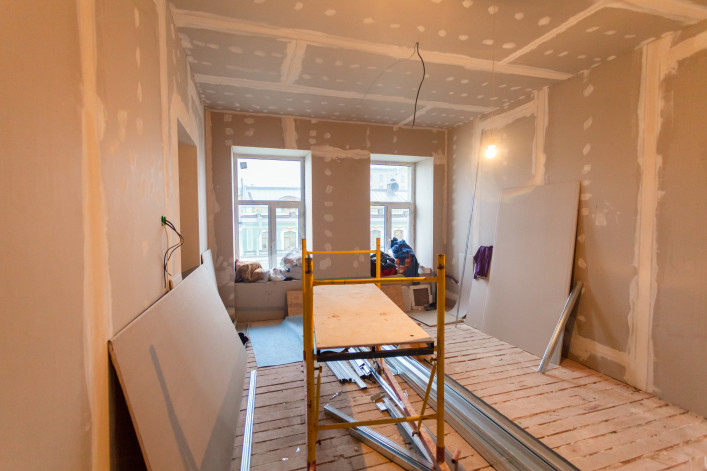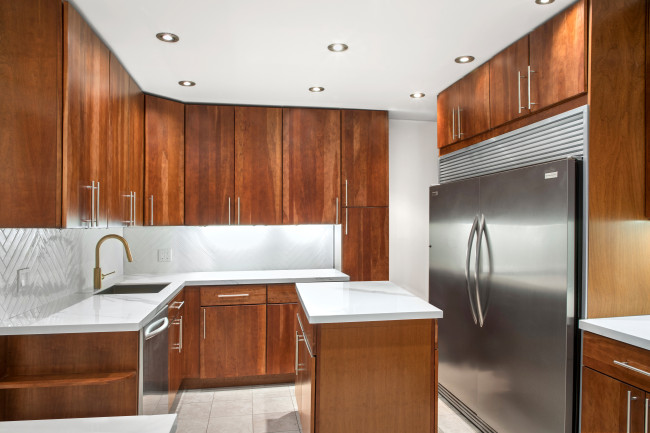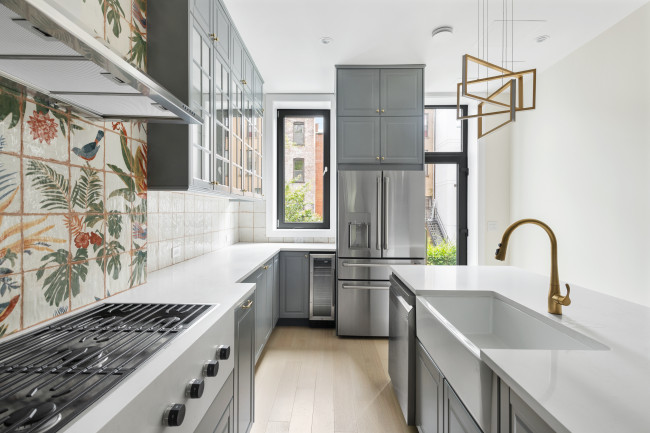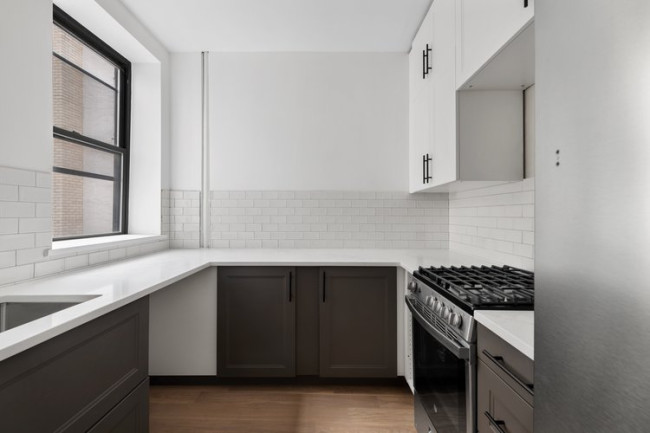5 tips for working around inflation when you’re renovating in NYC

A rise in the cost of energy, insurance, and construction materials, plus a tight labor market and shipping delays, are having a snowball effect on renovations.
iStock
If you’re planning on renovating a New York City apartment or house in the near future, factoring in the impact of inflation should be your main priority.
That’s because you can expect your costs to be exponentially higher than they were a year ago, and the work to take even longer.
A rise in the cost of energy, insurance, and construction materials, plus a tight labor market and shipping delays, are having a snowball effect on renovation work. For example, basic construction materials such as gypsum, paint, concrete, lumber, and steel are at historic highs.
In addition, the average rate for a 30-year fixed rate mortgage is hovering close to 5.45 percent, compared to the historic lows of 2.65 percent in January 2021—making it more expensive to buy, as well as finance a renovation.
Despite these challenges, you can still reach your renovation goals, you just need to plan carefully.
Spend less, build faster with Bolster. "We deliver risk-free, on-time, on-budget renovations," says Bolster's CEO and co-founder Anna Karp. "We give you a fixed-priced cost up front, and absorb all unforeseen project costs after the demolition phase. Bolster--not you--is responsible for any and all surprises." Ready to start your renovation? Learn more >>
How to prepare for your 2022/2023 renovation
TIP #1: Be realistic about cost and timeline. Not only will renovations performed in the coming year cost more, they will likely take longer. A good renovation partner will help provide visibility and transparency into this part of the renovation process in order to help homeowners account for increased wait times and costs.
For example, in order to de-risk supply chain issues and protect against cost increases, Bolster ensures all specs are signed off in advance of the project start date, and that all furniture, fixtures, and equipment (FF&E) is purchased within two weeks of the project start date.
TIP #2: Treat your home like an asset. One of the many upsides to owning a home is that real estate is a hard asset that usually holds its value during inflationary periods. Homeowners should focus on renovations that offer a high return on investment. For most New Yorkers, this will include modern improvements that many NYC residences lack, such as HVAC, laundry amenities, and additional space. Other high ROI renovations typically include kitchens and floors.
TIP #3: Be wise before you DIY. Many homeowners think they can save money through DIY projects, when in fact the opposite is often true. Hiring a professional to rescue a project is almost guaranteed to be more expensive than hiring a trusted renovation partner from the start.
Examples of projects you should never attempt to do yourself are plumbing and electrical work, which are tricky and time-consuming at best and disastrous to get wrong at worst–not to mention that in NYC, all electrical and plumbing work has to be done to code and with licensed and insured professionals. Having the right insurances and licenses on your project protects you against extra cost for you and if there are damages to any of your neighbors. With inflation at a high, homeowners should consider all risk factors in order to minimize their exposure.
TIP #4: Partner with an experienced professional. An experienced renovation professional will guide you through the process and be transparent about the realistic cost and timeline of your renovation. If you’re going the traditional route like design-bid-build, obtain and compare bids from multiple general contractors. If you’re working with a Design-Build firm like Bolster, ask them for clarity on how they are preparing for and addressing the current market in order to protect your project. You deserve a partner in your renovation who can help you weather the storm and see your renovation through to the end.
TIP #5: Be supply-chain savvy. In some cases, it may make sense to upgrade your selections and buy domestically: Lower-quality imported items have risen in price more than higher-quality, domestically produced counterparts. If you had your eye on an upscale piece, you may be able to find a deal. Renovation professionals also have relationships with suppliers and in many cases can get you the best price for your FF&E, meaning, all of the “furniture, fixtures, and equipment” required for the home, such as vanities and hand showers.
The Bolster formula
How else does Bolster, a data-driven, NYC design-build firm, protect their renovators from inflation? A blanket percentage discount on projects was not enough.
So Bolster decided to offer a unique, fixed-price cost on all projects. Bolster keeps a careful watch on the cost of construction materials and can calculate inflation increases based on labor and insurance costs, which is a unique advantage compared to other residential general contractors.
Bolster uses the Consumer Price Index for urban areas, calculating a rate for the month in which a contract is signed, then subtracts the Consumer Price Index urban rate at completion, and applies a 2 percent discount, which is absorbed by Bolster. (To learn more about how the formula works, visit Bolster's blog.)
The Bolster Smart Renovation Zero-Risk Guarantee
How can a design-build firm guarantee a Zero-Risk renovation?
Bolster has pioneered Smart Renovation. We apply quantitative analysis along with our proprietary technology solution to identify and quantify the performance risk on every renovation project. The result is a personalized strategic approach to each renovation that allows us to absorb 100 percent of the homeowner’s risk. Your home will be beautifully designed, and delivered on-time and on-budget. That is our guarantee.
Smart Renovation & Zero-Risk means that Homeowners are now free to dream.
To start your major home renovation project visit bolster.us.
The Bolster Promise video
You Might Also Like






























